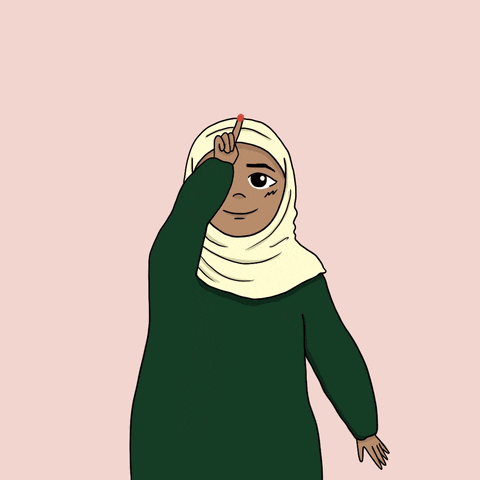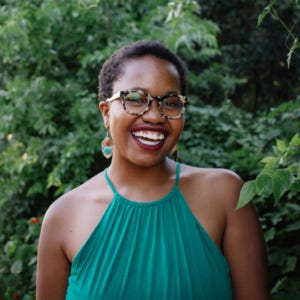If you’re enjoying Carefree, why not tell your friends?
Hey y’all,
First off, a huge huge THANK YOU for filling out the survey I sent out. Luckily for me, survey says y’all are enjoying Carefree as is! This is really affirming news. While I do still plan to create more mediums for Carefree (videos, podcasts, events) later this year, it’s good to know that these ideas would simply add to the experience of this storyletter that you’re already enjoying. I’m so grateful for each and every one of you in the Carefree crew.
With that being said, I’m always open to pitches! If you have any stories you’d like to write on life, love, adventure, and happiness, send them my way at hello@carefreemag.com.
P.S. - Eid Mubarak to all of our Muslim gang who recently celebrated. Much love.
This Week’s Story
TW: Extreme violence against Black people
I’ve been thinking of Ralph Yarl a lot. He was a 16-year-old child who lives in Missouri. Last week, he went to pick up his younger siblings from his friend’s home, but he accidentally went to the wrong address. 115th Street instead of 115th Terrace. He rang the doorbell and was immediately shot, twice, by the 85-year-old white man who opened the door.
It feels never-ending. It feels suffocating. It feels like apathy about it all is getting closer and closer to America’s reality of the continuous war against Black bodies in the country. Is it still meaningful to look for hope?
This week’s author, Loré Yessuff, believes so, and she finds that hope in the most inconsequential person: her mailman.
Praying for Ralph Yarl and his family,
Anayo Awuzie
EIC of Carefree
A Love Letter to My Mailman, and the Incomparable Camaraderie Between Black Strangers
by Loré Yessuff
Every day, between 2 and 4 p.m., the mailman strolls around my neighborhood and the very knowledge of his closeness makes me feel like I am 13 again. My whole body becomes a tiny whirlwind, and my insides spin with mild embarrassment and gladness. Somehow, he always seems to approach my apartment when I am most visible—as I accidentally throw the recycling into the garbage bin or dance wildly to Thundercat’s “Dragonball Durag” or fight off mosquitos during a midday porch break. Maybe it’s that I subconsciously want to be seen and make myself noticeable when I sense his arrival. Either way, our interactions, though expected, always feel coincidental and surprising, as if I’m meeting him for the first time every day.
It’s also possible that I’m just inventing this intimacy to make meaning, to cope. During the times of quarantine, he was the only Black person I saw non-digitally on a regular basis. It had been weeks since I embraced someone who looked like me. My roommates are white, my neighbors are white, and a majority of the people in Austin, where I have lived for a few years now, are white. The prevalent whiteness of my surroundings only intensifies the acute adoration I have for him. But even before the pandemic, I felt fond of him. Each day, he greets me with a familiar kindness, like that of a close friend. His walk, always skip-like. His demeanor, always refreshing.
What started as an ordinary interaction became a fascinating point of connection.
At first, my relationship with him was an inside joke with friends. I’d tell them that the mailman delivering my body oil was the closest thing I had to physical intimacy. On walks with my neighbor, I’d dramatically pronounce him to be the love of my life and pretend to swoon. But after a few weeks, the joke evolved into something more serious: I couldn’t stop thinking about seeing him. What started as an ordinary interaction became a fascinating point of connection.
The very nature of the mailman’s job embodies what I consider to be the most romantic aspect of strangerhood—although we do not know anything about each other, we are reminded of our interconnection in the small, seemingly arbitrary ways that our lives intersect. For a few moments every day, the mailman holds my most intimate items: the overpriced panties I impulsively purchase, the student loan bills I never open, the letters from friends that I open quickly with delight, the cadmium yellow bed sheets I cry on when I feel small, the Fenty Hot Choco-lit lip gloss I swipe on when I want to feel like the hottest girl in the world.
When he delivers my mail, all he sees are slightly bent envelopes and cardboard boxes, but inside the packaging are the personal artifacts that make up my rituals and routines, the things that contribute to who I am. This is not to say that bills and material items are my identity, but they are undeniably a fragment of it. And it feels significant and wondrous that a Black man I barely know is a part of this fragment. He probably doesn’t have this romanticized perception of his role in my life. At the end of the day, I’m just one of the many people to whom he delivers mail. Still, I feel a tenderness that I need right now.
It feels cathartic to join together digitally, giving each other the space for rage and heartache.
The murder and assault of Black people in America is not a new occurrence, of course. Our country was structured upon the blood of Black and Brown lives. Suffering, especially that of the Black community, is a part of the foundation of American history. We feel and see this history systemically and individually on a regular basis. All Black people can tell stories about racist encounters we’ve experienced throughout our lives. Some of these experiences are subtle, like racial gaslighting or invalidation, while other experiences are overtly abusive and life-threatening, like being killed by police.
Whether it’s micro- or macro-aggressive, racism is always traumatic and haunting. Sometimes, it feels as if white people need sacrifices for our livelihood to be considered and respected. Why must our blood be spilled? Why aren’t our words enough? Online, my Black friends and I exchange our frustrations via typo-ed tweets and DMs. It feels cathartic to join together digitally, giving each other the space for rage and heartache. However, eventually, I’m forced to put down my iPhone and reckon with the fact that I am alone, separated from the people who understand my pain the most.
Recently, while on a bike ride, I thought about a Black college acquaintance who was tackled, frisked, and arrested for cycling without a bike light. Though this incident wasn’t fatal, I considered that something similar could happen to me and I may not be as lucky to survive. I had taken the bike ride to soothe my anxieties, but these thoughts only heightened them.
As I rode around downtown, my brown skin illuminated by the golden hour, I worried whether I would be America’s next unnecessary sacrifice in this fight for racial justice. I imagined the digital memorials my friends and family would craft in honor and defense of my life. I imagined the swarm of ignorant individuals who might plaster them with invalidating comments like #alllivesmatter. I visualized the life I so badly desire to live being taken from me. As I thought through these horrific things, a police officer drove past and waved. The moment felt so ironic. I could only sigh in response.
Sometimes, I wonder if the mailman feels scared as he works—his Black body so visible as he approaches homes throughout my very white neighborhood. I’ve thought to ask him, but instead, I bring up superficial things like the weather. His kin-like warmth suggests that he knows I’m not really asking about the Spring allergy season. Amidst this national chaos, how could I be? The threat to Black life is the main thing on my mind and I assume this is true for him too. We’ve never openly discussed this, but somehow our small talk feels as comforting as the difficult conversations about racial politics that I have with my companions during long FaceTime calls.
I adore him, I do. And I have reason to believe this adoration is at least somewhat mutual. There is always an instant camaraderie when Black strangers encounter each other, even if the exchange is brief and minimal. It’s felt in the head nods, in the grins, in the reciprocated hair compliments. As this country continues to neglect, violate, and assault us, it’s necessary to offer this kind of softness to each other, to share comfort through body language, to validate our collective weariness with just a few words. Compassion is the only thing we have.
Loré Yessuff is a writer who explores topics related to intimacy, identity, and interconnection. She is obsessed with tender clichés like love poems, wild lilac, sweet plantains, and cinnamon-spiced coffee.
Previously published on Repeller








My opinion is they wish we can become desensitized by all the killings of Black folks. We will never be. On the mailman anecdote, boy! I was hooked only to be left hanging. I was looking for a relationship lol